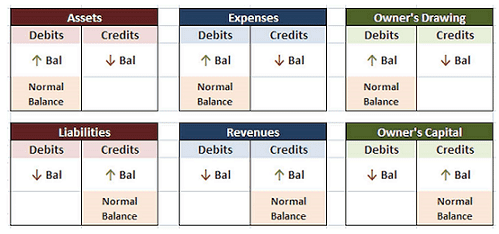8 Crucial Principles of Records Management

Moreover, organizing records based on metadata or folder structure promotes consistency and transparency across the organization. As with any policy or procedure, records management is not free from complications and issues. Records management has been income statement in place in public and government agencies, healthcare, and public companies for a long time, but it’s just starting to catch on in the private sector. No matter how ingrained it is within in any system, there will always be compliance and legal issues. Next, develop retention schedules that work for your organization and follow industry, government, and ISO standards.
- Such software is marketed as enterprise information management applications that can help an organization address information governance, which is the formal management of both records and other content.
- When choosing accounting software, consider your startup’s needs, budget, and growth projections.
- Lastly, digital tools streamline workflows by automating processes and reducing manual tasks.
- Companies need to obtain information quickly for everyday business operations and compliance requirements.
- As organizations delete records, they remove most of the risk related to those documents, which can come from PII spills or embarrassing information leaks.
- Records management exists to provide a history of documents and decisions and to ensure continuity.
Establishing a records management policy
- Educate yourself on the latest techniques used in financial fraud to enhance your ability to identify potential red flags.
- They also maintain relationships with external partners related to these areas (e.g., investment bankers and insurance companies).
- The allocation of those resources should be governed by the policies, processes, and procedures, and in doing so you will have established a system.
- Each article on AccountingProfessor.org is hand-edited for several dimensions by Benjamin Wann.
- Document retention policies should also be established to determine how long records should be kept and when they can be disposed of.
- Supporting documentation, such as invoices, contracts, or delivery receipts, can provide additional evidence to verify the authenticity and validity of financial documents.
Organizing your financial records involves creating a systematic filing system that categorizes documents by type, such as income, expenses and tax-related papers. Utilize digital tools or physical Bakery Accounting folders to ensure that you can quickly locate important documents when needed. The process of identifying and documenting records is a crucial step in the records management process and considered one of the top records management best practices. A document management system enables your company to systematically organize, track and protect records.

Benefits of Digitizing Documents, Files, and Records
With record compliance growing increasingly stricter, it’s crucial for organizations to have a solid record management system in place to ensure they abide by all necessary regulations. These laws and regulations can include things like HIPAA, FACTA, and/or the HITECH Act — all of which merit a well-structured approach to records management. And easier, more seamless compliance is incredibly helpful to your agency as a whole, considering enforcement for noncompliance can be quite severe (ranging from legal actions to other expensive penalties). Today, too many companies either underestimate the importance of records management, or view this process as a matter of convenience (rather than one of necessity).

Investment and Management Decisions

Additionally, it can lead to lost revenue, decreased efficiency, and a damaged reputation. The records must encompass all sources of income, expenses, and deductions and must be accurate, complete, and readily available for the IRS to inspect. Recordkeeping is a primary stage in accounting that entails keeping a record of monetary business transactions, knowing the correct picture of assets-liabilities, profits, loss, etc. In addition, it assists in maintaining control of the expenses to minimize the expenditure and have important information for legal and tax purposes. In other words, a recordkeeping system is the backbone of any company’s financial structure. The records officer developed a records management policy that was approved by agency leadership.
- Additionally, digital record-keeping allows for easy access, searchability, and organization of documents, enhancing efficiency and accuracy in managing records.
- Most document management systems can improve records workflows regardless of the industry.
- They translate numerical data into actionable business intelligence, contributing to informed decision-making across the organization.
- Learn more about content management with Hyland or take this free assessment to see what solutions your organizations could benefit from.
- However, paper records require more manual processes, such as physically locking cabinets and shredding documents.
Retention and disposal policies
- Throughout the records management lifecycle, it’s essential to maintain security and privacy.
- These reports are easily shared with stakeholders and stored on the software thanks to our unlimited file storage.
- Also, good record management can help keep important information from being lost or damaged and help organizations follow the laws and rules that apply.
- Reconciliation should occur on a regular basis, such as weekly or monthly, to compare internal financial records against bank statements and ensure their accuracy.
- They include wills, trusts, notarized contracts with raised seals, titles to property, checks and promissory notes.
The procedure has to be approved by top management and also needs to mention when a change in termination or disposal of any record is allowed. A good records management plan is important for any organization to maintain a strong and healthy culture. It ensures that the records are properly record keeping for small business managed, organized, and protected from any damages. This is because there are a lot of processes that have to be followed and it’s not always easy to remember them all.

Monitoring Cash Reserve
Accounting has a much more broad definition than simply recording transactions in an accounting system. Accounting is used to identify events that need to be recorded, recording the transactions of these events, and communicating the effects of these transactions with people inside and outside of the company. As you can see, record keeping is only a small part of the broader definition of accounting. This principle serves as the basis for implementing an effective record-keeping program within organizations.

Financial modeling is a perfect example of this; predictive modeling software simulates various scenarios by weighing historical data and current market dynamics against your proposed action. Risk managers are responsible for identifying, assessing, and mitigating financial risks that could harm a company’s financial health. They work closely with the CFO, treasurer, or VP of Finance to facilitate investment decisions.




دیدگاهتان را بنویسید
برای نوشتن دیدگاه باید وارد بشوید.